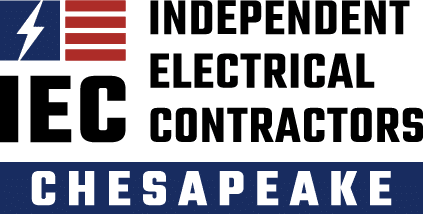This report contains additional information about Maryland legislation that passed as well as legislation that failed. There are bills that affect the electrical industry and other Maryland businesses.

House Bill 810 (PASSED)- Apprenticeships and Training Council- Revisions. This legislation conforms State law to Federal law do designate the Division of Workforce Development and Adult Learning, rather than the Maryland Apprenticeship and Training Council as the State apprenticeship agency that is charged with approving and overseeing apprenticeship programs.
Senate Bill 807 and House Bill 349 (PASSED)- Income TAX Credit- Wages Paid to Qualified Veteran Employees (Hire Our Veterans Act of 2017). This legislation creates a tax credit against the State income tax for a small business that hires a qualified veteran employee. A small business may claim an income tax credit that may not exceed 30% of up to the first $6,000 of wages paid to the qualified veteran employee during the first year of employment. A small business may claim the tax credit for a maximum of five qualified veteran employees in a taxable year. The Department of Commerce may issue a maximum of $500,000 in tax credits annually.
Senate Bill 6 and House Bill 138 (PASSED)- Occupational and Professional Licensing Boards, Commissions and Regulatory Entities- Notifications of Applicants, Licensees, Registrants and Permit Holders. This legislation authorizes certain boards, including the Maryland State Electrical Board to send specified credential-related notices electronically instead of by mail.
Workers’ Compensation Legislation
Senate Bill 426 and House Bill 1294 (PASSED)– Workers’ Compensation- Permanent Total Disability- Survival of Claim. This legislation increases the cap from $45,000 to $60,000 on unpaid benefits that may survive to a covered employee’s dependents or spouse when the employee was receiving permanent and total disability benefits and died from natural causes unrelated to the claim.
Senate Bill 194 and House Bill 1484 (PASSED)- Workers’ Compensation- Medical Benefits- Payment of Medical Services and Treatment. This legislation generally establishes a 12 month time limit for a medical service provider that treats a covered employee under workers’ compensation to bill an employer or its insurer. The employer or its insurer may not be required to pay a bill submitted after the 12 month limit unless the provider files an application for payment within three years from the later of the date the medical service or treatment was provided, the claim was accepted by the employer or its insurer or the claim was determined by the Commission to be compensable and the Commissioner excuses the untimely submission for good cause.
Senate Bill 867 and House Bill 1476 (PASSED)- Workers’ Compensation- Failure to Report Accidental Personal Injury- Penalty. This legislation requires an employer to report within three days to the Workers’ Compensation Commission an accidental personal injury which causes a disability for more than three days or death. In addition, an employer must promptly report an occupational disease disability to the Commission. Failure to report an accident or occupational disease is a misdemeanor with fines up to $150. For known violations, maximum fines have increased from $50 to $500.
Senate Bill 21 and House Bill 157 (PASSED)- Unemployment Insurance- Recovery of Benefits- Collection by Assessment. This DLLR bill authorizes the Secretary to recover the principal amount of Unemployment Insurance (UI) benefits have been improperly paid to a claimant by assessment like that used for assessment of past-due employer contributions.
Failed Legislation
House Bill 317 (FAILED)- Labor and Employment- Wages and Benefits- Preemption of Local Authority. This legislation would have prohibited a local government from enacting a law that regulates the wages or benefits provided by an employer.
House Bill 398 and Senate Bill 404 (FAILED)- Labor and Employment- Equal Pay- Job Announcement and Salary History Information Disclosures. This legislation would require an employer with 15 or more employees to include specified compensation information, including a minimum pay rate, in a job advertisement. An employer could not pay less than the advertised minimum rate of pay. In addition, the employer could not screen an applicant for employment based on salary history.
House Bill 871 and Senate Bill 652 (FAILED). This legislation would establish collective bargaining process for local community college employees including full-time faculty, part-time faculty and staff, but excluding officers, supervisors or confidential employees and student assistants.
House Bill 1443 (FAILED)- Maryland Pay Stub Transparency Act of 2017. This legislation would have required written notice by an employer to an employee about how wages were calculated within 30 days of the employee’s first day of work.
House Bill 1511 and Senate Bill 626 (FAILED)- Prevailing Wage Rates- Public Work Contracts- Suits by Employees. This legislation would allow an employee under a public work contract who is paid less than the appropriate prevailing wage to sue to recover the difference in wages paid. Treble damages would be mandated under a knowingly and willfully standard.
Contact
Kevin O’Keeffe at 410-382-7844 or [email protected]













